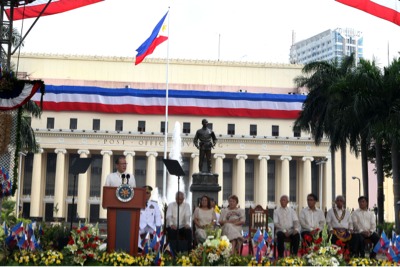Sign up for FlowVella
Sign up with FacebookAlready have an account? Sign in now
By registering you are agreeing to our
Terms of Service
Loading Flow


Problems with government
Political Factors
One of the greatest disappointments of the Aquino years was the lack of progress in the agrarian reform program. Aquino could have used her political honeymoon and her inherited dictatorial powers to divest the old aristocrats of their estates and pass out land to the farmers who actually tilled it, but she waited until the new Congress was elected and gave the job to them. About 90 percent of Congress members were landowners. The version of the Comprehensive Agrarian Reform Program passed by the Congress was signed as the Comprehensive Agrarian Reform Law by President Aquino on June 10, 1988. It included many loopholes deliberately added by members of Congress to enable landowners (including themselves) to evade the intent of the law. A bloc of landowning legislators led by Aquino's brother, Jose Cojuangco, resisted efforts to pass more effective agrarian reform measures.The Commission on Human Rights, established under the 1987 constitution, had not been effective, at least in its first four years. The Constitution grants the commission broad powers to monitor the government's compliance with international treaty obligations on human rights. The commission, however, claiming that it cannot investigate abuses that occur "in an environment of war," as of the end of 1989 had resolved only about 10 percent of the cases brought before it and reverted to investigating ordinary civil police matters. Even notorious cases, such as the 1987 Lupao Massacre, in which seventeen villagers, including six children and two octogenarians, were lined up and shot after an engagement between the army and guerrillas, did not result in any military or civilian convictions. In 1990 the Supreme Court decided that warrantless arrests of suspected subversives were constitutional.
